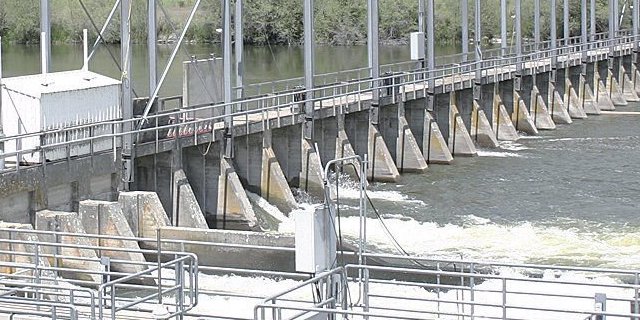Private Treaty February 2025
Pacific Cattle Angus, Sim-Angus, and Simmental range-raised production fall bulls available by PRIVATE TREATY FEBRUARY 2025 Carl Wisse • carl@pacificcattle.com www.pacificcattle.com • 509-539-6850 • Eltopia, WA
Published 5:21 pm Tuesday, January 28, 2025

The U.S. Bureau of Reclamation can restrict a non-federal water diversion under its contract with the Klamath Drainage District, according to a federal appeals court.
The 9th U.S. Circuit Court of Appeals has ruled that Reclamation can control the district’s withdrawal of water from the Klamath River, even if it’s through the district’s own canal.
“KDD had a contractual duty to adhere to Reclamation’s allocations and not divert water from the Klamath River, which KDD does not dispute it disregarded,” the ruling said.
Under a 1946 contract, the district can divert water through the Klamath Irrigation Project, which was built by Reclamation along the Oregon-California border and is subject to Endangered Species Act restrictions for fish.
However, the district also obtained a 1977 water right to withdraw water from the river through its own canal that isn’t part of the federal irrigation works. The district claimed that Reclamation shouldn’t be allowed to curtail irrigation through that canal because it’s outside the agency’s jurisdiction.
The 9th Circuit has now determined the 1946 contract allows Reclamation to curb the district’s use of the 1977 water right “through reasonable rules and regulations” for water distributions affecting the Klamath Irrigation Project.
“KDD violated a duty or obligation arising under the Contract when it diverted water in contravention of Reclamation’s plans,” the ruling said.
According to the 9th Circuit, a federal judge correctly issued an injunction in 2023 that forbid the district from using the 1977 water right without Reclamation’s permission, as the agency faced “irreparable injury” from such withdrawals.
The unauthorized withdrawals undermined the agency’s “ability to operate the Project in accordance with its competing obligations” and posed a risk to endangered species that depend on Klamath River flows, the ruling said.
“The harm to KDD in barring its unauthorized diversions is a consequence of the priority of Project obligations and the harsh fact that there is not enough water to satisfy all demands,” the 9th Circuit said. “That consequence is not a harm that Reclamation caused, nor is it one the parties can avoid without violating superior obligations.”
The Oregon Farm Bureau, Oregon Wheat Growers League, Klamath Water Users Association, Family Farm Alliance and Oregon Water Resources Congress supported the district’s arguments, claiming that Reclamation shouldn’t be able to “require actions by nonfederal actors at nonfederal facilities.”
The agricultural organizations argued that enjoining the 1977 water right gave “Reclamation unfettered authority to enforce its expanded version of ‘discretion’ on a water user simply by virtue of holding a federal contract.”
The federal government countered that unconstrained use of the 1977 water right would permit the “illogical and one-sided result” of allowing the district to divert water that’d been released by Reclamation upstream to help protected fish.
Reclamation claimed the district wanted to “vault ahead of the Project’s highest priority obligations, circumventing a system of contracts and law that have managed the Project for over a century.”